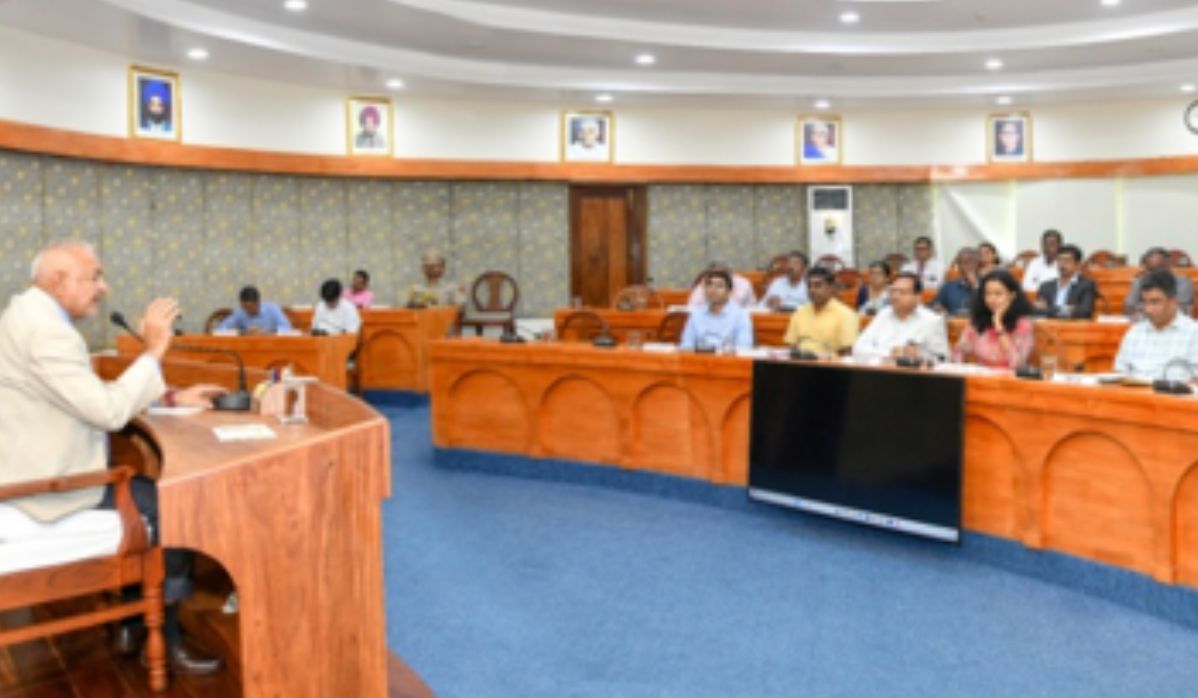Tarun Karthick
Sri Vijaya Puram, 11 January 2024
Admiral D K Joshi, PVSM, AVSM, YSM, NM, VSM (Retd.), Hon’ble Lt. Governor of Andaman & Nicobar Islands and Vice-Chairman of the Islands Development Agency, reviewed the wildlife conservation and tribal welfare plans associated with the holistic development of Great Nicobar Island on 9th of January 2025. The review was conducted at Raj Niwas in the presence of senior officials, including Chief Secretary Dr. Chandra Bhushan Kumar, IAS, and other key members of the A&N Administration.
The plans, prepared by expert agencies in coordination with the Forest Department, Tribal Welfare Department, and Health Department of the Union Territory Administration, are integral to the environmental clearance for the ambitious project.
During the presentation, Mr. Arjun Sharma, Executive Director (GNI) of ANIIDCO, highlighted the long-term strategies for wildlife conservation and tribal welfare. These include biodiversity protection plans spanning 30 years for species such as leatherback turtles, corals, long-tailed macaques, coconut crabs, megapodes, and crocodiles, as well as a 50-year plan for safeguarding the interests of tribal communities.
Representatives from key implementing agencies—including the Wildlife Institute of India, Zoological Survey of India, Botanical Survey of India, Salim Ali Centre for Ornithology and Natural History, and Indian Institute of Forest Management—were also present.
The plans prioritise biodiversity conservation, focusing on species diversity and endemism unique to the island and surrounding region. The UT Administration reaffirmed its commitment to protecting and managing these species while ensuring the welfare of tribal communities amid the island’s holistic development.
The Great Nicobar Island development project aims to balance ecological preservation with sustainable progress, underscoring the Administration’s efforts to safeguard both environmental and cultural heritage.

